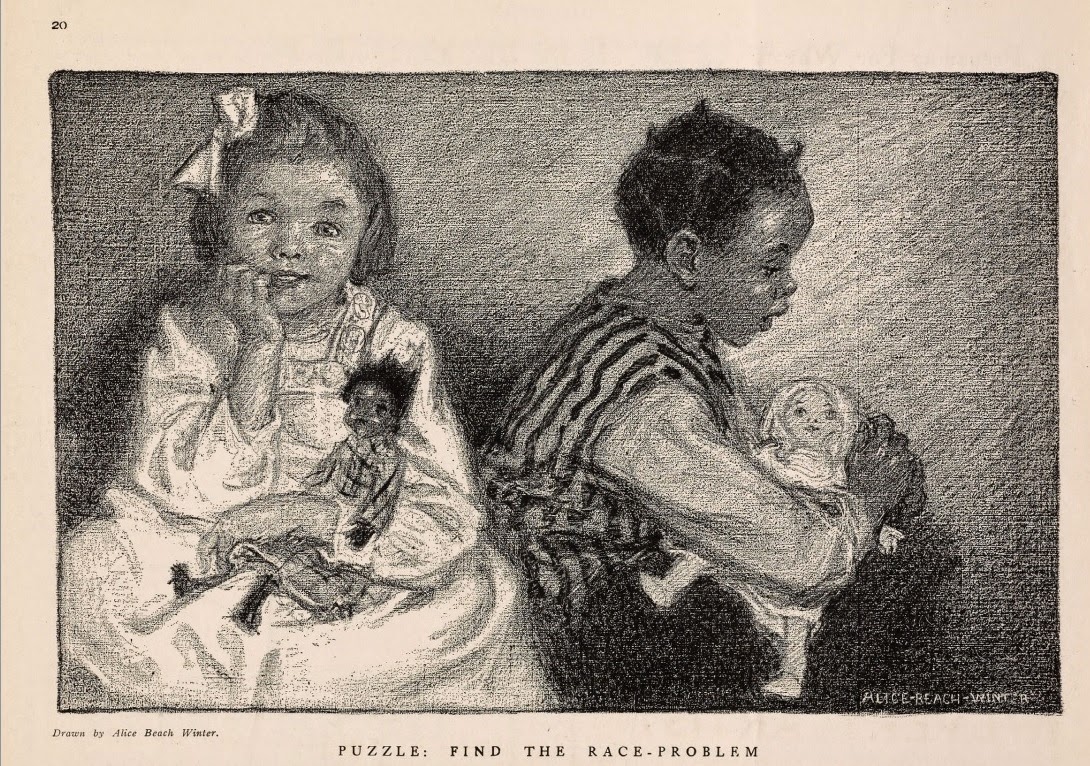This issue of
The New Age is uncommonly packed with content that caught my eye, so this post might ramble a little.
As a student of modernism, I'll look first at A.E.R.'s (Alfred E. Randall) review of Horace B. Samuel's book
Modernities. Samuel's book apparently followed \ thinkers and writers that he considered modern, with one figure per chapter. It's the review, though, that interests me more (having not read the book this is only natural). A.E.R. enters into ongoing debates about the nature of modernity. Vide:
"Exactly what the word “Modernities” means, I do not know and Mr. Samuel does not say; to call them “Newnesses” would be to risk a fearful pun on the name of one of our wholesale providers of reading matter. What is a “Modernity”?" (755).
The pun, I think, is on the eponymous publishing company founded by
George Newnes. Haha, I guess, but to continue: what is a "modernity?" A.E.R. expresses displeasure with Samuel's definition, which I'll quote:
"If, however, an attempt were to be made to pronounce of what the spirit of modernity really consists, one might suggest that it is a spirit of energy, of fearlessness in anaylsis, whose sole raison d'etre and whose sole ideal is actual life itself." (Samuel)
A.E.R.'s objection to this definition is that these are not unique characteristics of a single moment or movement, historically speaking. This is a version of the many-modernisms theory. The last chapter of Samuel's book is titled "The Future of Futurism," in which he restates the thesis that energy defines modernism, and futurism is special because the form exceeds the content. A.E.R.'s response to it is worth quoting.
"[Samuel claims that] the function of form is to extract the whole emotional quality of its content, or, in other words, form exists for the purpose of emptying itself. It is not a container, but an extractor, of its content; it is Life plucking out its own entrails, if I may use so violent a personification; in other words, it is not form. There is one word that describes such a conception; it is phantasmagoria; and that is what Mr. Samuel really means by modernity" (756).
To give this a little context and analysis: lately Orage, A.E.R., and therefore
TNA at large have been pleading for a common-sense English nationalist aesthetic based on wisdom (see his comments on Greek sculpture on page 755, for example). It's that strange paradox where
TNA promotes some modernisms (particularly visual modernism) but not others. The bloggable quick answer might be that they feel the pressure that contentless form places on political organization, pre-flecting the debate between postmodernism and identity literature (I'm not qualified to speak on that debate, but my ear picks up a resonance). The excellent modernist artwork that Orage prints, like Roberts' image in this issue (see below), usually have a recognizable non-abstract content-contained in them.
Orage also makes a vicious attack on Harold Monro and his
Poetry and Drama, but I'll be better equipped to talk about it tomorrow when I pick up the bound editions of
P and D from my library.
Going back to the beginning of this week's
TNA, the issue begins with a discussion of
Edward Carson and the Ulster resistance to Home Rule. I had no idea that he was also the prosecutor of Oscar Wilde's libel case. By this time, he's helping to organize the illegally-armed Ulster militia that will ultimately keep Northern Ireland part of the UK.
The New Age, though, thinks he is just bluffing and that the northern counties will use their armed wing as leverage in negotiations, before inevitably joining the rest of Ireland. Alas.
A. H. Hannay contributes a review and critique of
Benedetto Croce's "The Theory of Art." Croce, according to Hannay, believes that imagination precedes perception. Artistic vision becomes everyday vision: "The visual perception of ordinary people, for instance, is not the datum of the painter, it is itself derived from some painter’s vision: it is a repetition of a previous original vision. And that vision was imaginative: it created a possible experience" (749). Croce-via-Hannay might provide a lens for modernist art as carving out new possible visions, and has the benefit of being part of the contemporary conversation.
Quick notes:
Arthur Thorn includes a short piece titled "The Starving Man: A True Story," about a magician-type who has fasted for many weeks.
There's a translation of a Checkov play, "Popping the Question," a silly farce about property and propriety.
Ananda Coomarswami, who has appeared before in connection with both
The Egoist and
TNA, contributes a piece on art history.
The correspondence pages include R.B. Kerr (a contributor elsewhere) making a Marxist rebuttal of Beatrice Hastings' antifeminism, explaining that her vision of femininity as separate from the sphere of work is class-based and, therefore, baseless when broadly applied.
There's also an angry dust-up with T.E. Hulme over cubism, penned by one Harold B. Harrison. Could he be real?
At one point Wilde gets taken to task for writing prose in poetic rhythm.
This is by
William Roberts, with a caption by Hulme in the magazine which I'll quote here because of its relevance to Orage's piece on Futurist form:
"This drawing contains four figures. I could point out the position of these figures in. more detail, but I think such detailed indication misleading. No artist can create abstract form spontaneously ; it is always generated, or, at least, suggested, by the consideration of some outside concrete shapes. But such shapes are only interesting if you want to explain the psychology of the process of composition in the artist's mind. The interest of the drawing itself depends on the forms it contains. The fact that such forms were suggested by human figures is of no importance" (753).


